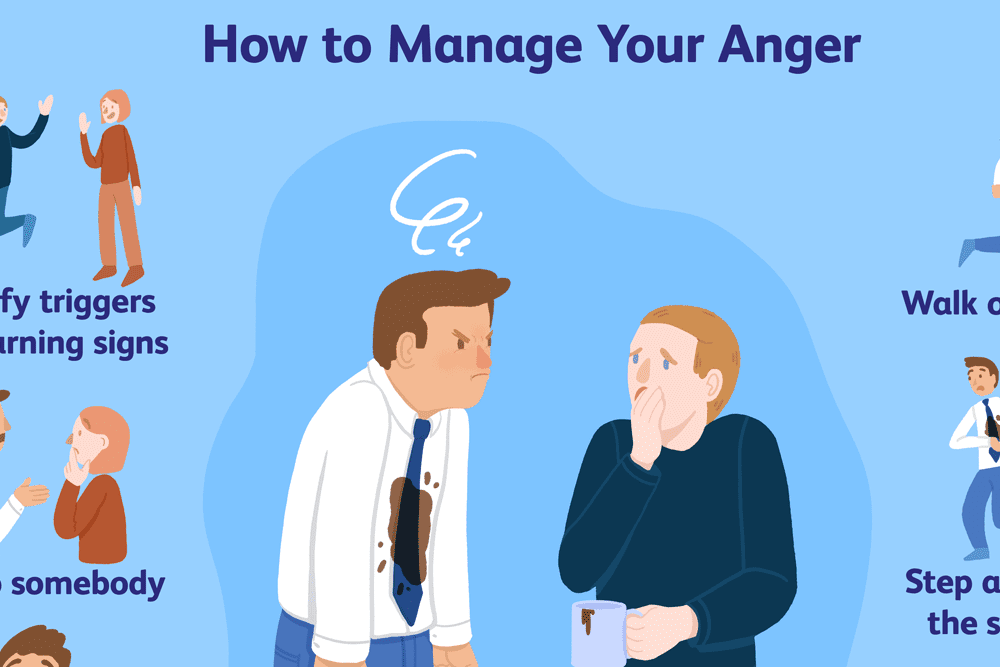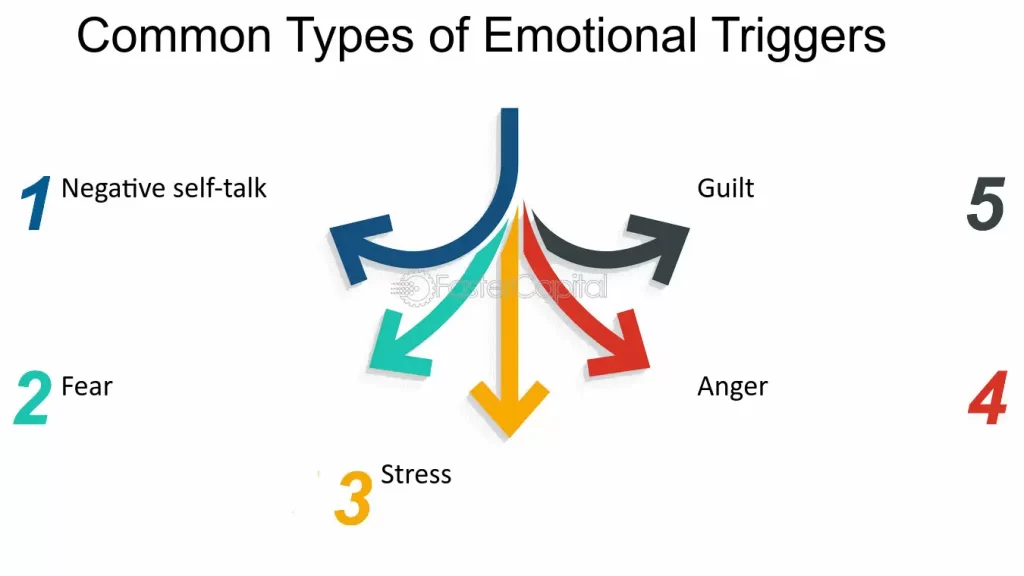
Introduction to Anger Management and Emotional Control
Anger is a natural emotion that everyone experiences. However, when anger becomes intense, frequent, or challenging to control, it can negatively impact both mental and physical health. Anger management is a set of strategies and techniques that helps individuals manage and reduce the intensity of their anger. Effective anger management can improve relationships, enhance mental wellness, and increase overall happiness.
In today’s fast-paced world, managing emotions like anger is more important than ever. Learning anger management techniques not only fosters a calmer, more peaceful mindset but also enhances overall emotional control. This blog provides practical and proven strategies for managing anger effectively, promoting better mental wellness and emotional stability.
The Importance of Anger Management
Anger management is essential for both personal and interpersonal well-being. Uncontrolled anger can lead to conflicts at work, strain personal relationships, and cause physical health issues such as hypertension and heart disease. On the other hand, mastering anger management can:
- Improve Relationships: When individuals learn to control their anger, they can communicate more calmly and effectively, reducing misunderstandings and conflicts.
- Boost Mental Health: Anger can fuel anxiety, depression, and other mental health issues. Proper management of anger helps in maintaining a balanced and stable mind.
- Enhance Physical Health: Chronic anger can lead to health problems like headaches, high blood pressure, and digestive issues. Managing anger effectively can help reduce these physical symptoms.
Learning to manage anger doesn’t mean suppressing emotions but understanding them and responding constructively.
Signs That You May Need Help with Anger Management
Recognizing the signs of anger that’s hard to control is a critical step in mastering anger management. Here are some common indicators:
- Frequent Irritability: If you find yourself getting irritated or annoyed easily, it could be a sign of underlying anger issues.
- Physical Symptoms: Clenching fists, grinding teeth, or feeling tense are common physical signs of anger.
- Aggressive Reactions: Shouting, swearing, or resorting to physical aggression to express frustration can be signs that anger is controlling you rather than the other way around.
- Difficulty Moving On: If you tend to hold onto anger for long periods, it can be a sign of needing better coping mechanisms.
Recognizing these signs is essential to begin the journey toward a calmer, healthier you.
Common Triggers of Anger and How to Address Them
Anger often arises from triggers or stressors that vary from person to person. Identifying these triggers can help you better manage and control your anger. Here are some common triggers and strategies for addressing them:
1. Stress at Work or School
Many people experience anger as a result of stress at work or school. Deadlines, high expectations, and pressure can all contribute to feelings of frustration.
Strategy: Take regular breaks, practice mindfulness exercises, and set realistic goals. Learning to manage stress effectively reduces the likelihood of anger outbursts.
2. Relationship Conflicts
Arguments or misunderstandings in relationships are common anger triggers. When emotions run high, anger can escalate, damaging relationships.
Strategy: Practice active listening and open communication. Focus on expressing feelings calmly without placing blame. Relationship counseling can also be beneficial.
3. Frustration with Daily Challenges
Minor inconveniences, like traffic jams or long lines, can trigger anger, especially if other stresses are present.
Strategy: Practice patience and focus on what you can control. Breathing exercises and positive self-talk can help reduce frustration.
4. Feeling Disrespected
Feeling disregarded or insulted is another significant trigger for many people.
Strategy: Take a moment to assess the situation and respond thoughtfully rather than reacting immediately. Setting boundaries and clearly communicating your feelings can also help.
By recognizing and addressing these triggers, individuals can manage their reactions more effectively.

Top Strategies for Managing Anger and Cultivating Calmness
Below are proven techniques to help manage anger and encourage a calm, peaceful mindset.
1. Deep Breathing Techniques
When anger strikes, it’s common to experience quick, shallow breaths. Deep breathing exercises, like taking a slow, deep breath in for four seconds, holding for four, and then exhaling slowly, can be extremely effective. This technique, known as “box breathing,” helps calm the nervous system, reduce stress, and lower anger levels.
2. Progressive Muscle Relaxation (PMR)
Progressive muscle relaxation involves tensing and then relaxing each muscle group in the body, starting from the toes and moving upward. This technique can help release tension and stress, which are often underlying causes of anger. Practicing PMR regularly can make it easier to remain calm in frustrating situations.
3. Use of Visualization
Visualization techniques can help distract from anger and promote a sense of calm. For example, imagining yourself in a peaceful place, like a beach or a quiet forest, can divert your mind from anger. With regular practice, visualization can help reduce the intensity of anger.
4. Cognitive Restructuring (Reframing Thoughts)
Anger often arises from distorted thinking patterns, like all-or-nothing thinking or exaggerating negative situations. Cognitive restructuring involves identifying and changing these thought patterns. For instance, instead of thinking, “This is unfair!” try to reframe it as, “I am frustrated, but I can handle this.”
5. Practice Mindfulness Meditation
Mindfulness meditation encourages a non-judgmental awareness of the present moment. Practicing mindfulness can help you become more aware of your emotions and prevent impulsive reactions. Just a few minutes of daily meditation can lead to better emotional control and improved anger management over time.
6. Physical Activity to Channel Energy
Exercise is an excellent way to release built-up tension and energy associated with anger. Physical activities like walking, running, or yoga can help calm the mind and body, reducing the intensity of anger. Regular exercise also increases the production of endorphins, which can improve mood.
7. Journaling to Process Emotions
Writing down thoughts and emotions can be a healthy outlet for anger. Journaling allows individuals to reflect on the reasons behind their anger, recognize triggers, and develop a deeper understanding of their feelings. Over time, this can lead to better emotional control and healthier coping mechanisms.
8. Seeking Professional Help
If anger is challenging to manage on your own, consulting a therapist or counselor specializing in anger management can be beneficial. Therapists can provide personalized strategies and guidance tailored to your specific needs, making it easier to cope with anger in healthy, productive ways.
How to Maintain Emotional Control in Everyday Situations
Building emotional control takes time and practice, but there are strategies to help in everyday situations.
- Pause and Reflect: When you feel anger rising, take a moment to pause before responding. Count to ten, take deep breaths, and assess the situation with a clear mind.
- Focus on Solutions: Rather than dwelling on what made you angry, focus on finding a constructive solution. This approach can shift your energy from anger to problem-solving.
- Set Boundaries: Establishing clear personal boundaries can help prevent situations that provoke anger. Communicate your needs and limits calmly and assertively.
- Practice Gratitude: Regularly reflecting on things you’re grateful for can promote a positive mindset and reduce anger. Gratitude can reframe perspectives and foster emotional resilience.
Practicing these techniques consistently will help you maintain emotional control and remain calm, even in challenging situations.
The Link Between Anger Management and Mental Wellness
Effective anger management directly contributes to better mental wellness. Uncontrolled anger can fuel negative emotions and stress, leading to anxiety and depression over time. By learning to control anger, individuals foster a more balanced mental state, leading to improved emotional health.
Managing anger also helps in building stronger connections with others, which is essential for emotional support and mental wellness. When you control your anger, you build trust, show respect, and create healthier interactions, all of which promote a more fulfilling life.
Conclusion: Embracing a Calmer, Healthier You
Mastering anger management is a journey that requires patience, self-awareness, and commitment. Anger, when managed effectively, can become a force for positive change rather than a destructive emotion. By implementing these strategies—from deep breathing to cognitive restructuring—you can cultivate a calmer, more peaceful mind and enjoy the numerous benefits of improved mental wellness.
Taking control of anger is not about suppressing emotions but about understanding them and choosing a constructive response. With consistent effort and a commitment to mental wellness, anyone can learn to manage anger effectively and lead a more harmonious, fulfilling life.




